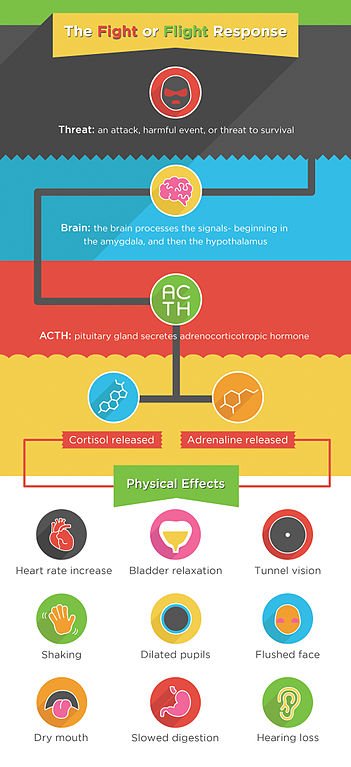Can you be aware in your dream?

The past few weeks I have been talking a lot about dreams with my friends. A couple of my friends told me they have Lucid Dreams very often. Lucid Dreams are dreams in which the dreamer is aware that he or she is dreaming and can sometimes influence the course of the dream. Well, that sounds interesting, right? I’ve never had the experience of a Lucid dream (I know it’s confusing, just read it a couple of times.) That’s why I wanted to find out more about it to see what’s up. But before we get into Lucid Dreams too much, let’s ask ourselves the question what are dreams? And why do we have them?
What are dreams?
A dream is a series of thoughts, images, and sensations occurring in a person’s mind during sleep. We all know that of course, but why do we have them? This is a question that has been debated over a lot. First I will tell you what different opinions I could find and then I will give my own thoughts on it.
Finding the answer to why we dream already started before the birth of Christ. Most explanations back then were related to spiritual reasoning. Plato and Aristotle were the first to think of something different. They defined dreaming as a way to act out unconscious desires in a safe or “unreal” setting. They thought this happened because, in reality, some things would be impossible or unacceptable. Later this idea has been researched more by psychoanalysts in the 19th and 20th century. But till this point, we haven’t gotten much further. One of the problems that arise is that the only way to research dreams is to ask the dreamer about their dreams.
One thing we know for sure, almost everybody dreams. Some researchers now a day believe that dreaming is just a meaningless by-product of the biological function of the brain to process data during the sleep. The brain is very active during sleep and this might explain partially why we dream. Another theory is that we dream to incorporate memories, solve problems and deal with emotions. In this way, dreams are essential for our emotional health.
An interesting idea circling dreams is the idea that dreams function as a fight-or-flight training. An area that’s most active during the sleep is the amygdala. The amygdala is associated with survival instinct and the fight-or-flight response. This idea also suggests that the amygdala is functioning during the sleep to wake faster in case of threats. So dreams might just be a way to stay sharp.

One widely held theory about the purpose of dreams is that they help you store information. How this is done isn’t clear yet, but dreams may help the brain store information more efficiently while blocking out stimuli that could interfere with memory and learning.
And then there are also a lot of people who gain inspiration from dreams. Some people even believe that every dream has a meaning and that your brain is trying to tell you something. Personally, I don’t believe in this idea. I believe that dreams are a side product of the brain storing information. I think our brain does this during the night to keep our brain active. By staying active we can wake up faster and react to any threats. But now let’s get to the real deal, Lucid Dreaming.
Lucid Dreams

You have to imagine that a Lucid Dream is like playing Sims in a world that fully is under your control without any boundaries. You can do anything. Everything is the same as in a normal dream, the only difference is that you’re aware. This makes the dream like an attraction park that you can create.
The first question that arose in my mind when I read about Lucid Dreaming was:” Is it real?” I thought that you might just be dreaming that you’re aware and that it isn’t real at all. Just as with dreams it’s, of course, hard to tell. Since we can only ask the dreamer what his experience was. Still, someone found a way to test Lucid Dreaming.
In 1975 Dr Keith Hearne did an experiment on Lucid Dreaming. In a previous research the idea came to earth that while dreaming, you’re eyes move the same as in your dream. Dr Keith Hearne used this to create communication between a dreamer and the real world. He would teach his subject a pattern of eye movements he can make while dreaming to show that he is aware of dreaming. If Dr.Keith Hearne could see the pattern happening in real life and record it, he could show that Lucid Dreaming is real. And he did this exact thing. The subject learned the eye-movements and when he slept, he made the eye movements in his dream. Dr.Keith could see the eye movements in real life. Once the subject woke up, he told Dr.Keith that he signaled when he got aware that he was dreaming.
A lot of people use this as proof that Lucid Dreaming is real. I’m not a 100% convinced since it’s a research done in 1975 with one subject (I mean, by now this should have been repeated a lot right?) Another study in Frankfurt in 2009 did show that the brain activity of Lucid Dreamers is higher than the brain activity of non-Lucid Dreamers during a period of sleep. But also in this study, only six subjects were participating. Maybe this has to do with a lack of research money in this area, I don’t know.
The research is still not very convincing that Lucid Dreaming is real. So the only way to really know more about it as an individual like you and me is by testing it out. But what are the dangers of testing this out?
Dangers

The dangers of Lucid Dreaming are very small according to most things I have read. The main things to take in consideration is if you’re mentally stable. If not, I wouldn’t recommend practising Lucid Dreaming. What Lucid Dreams can cause is a kind of sleep paralysis. Is very uncommon, but it has happened to people. When this happens you’re awake, but you can’t move. Sometimes you can still see imaginary things in the real world since you’re kind of in between sleeping/dreaming and being awake. This can be a very unpleasant experience is what I have read (I mean, you can basically have your worst nightmare in real life, yea…. I know, sounds pleasant…..) Now you know the dangers of this Lucid Dreaming (so don’t complain to me if that happens okay?) so let’s get into how we can start Lucid Dreaming.
How do we create Lucid Dreams?
.jpg)
There are a lot of things you can do to start Lucid Dreams. One of the most common advises people give is to start a dream journal. In this way, you can start recognizing what your dreams are most often about. Once you know what you often dream about, it gets easier to recognize it when you’re dreaming it.
Another technique used is the reality check. What you need to do is a reality check now and then during the day (about every 3 hours or so.) In this way, you might do the reality check in your sleep as well (because it becomes a habit and we tend to take habits to our dreams.) Once you do it in your dreams, you will start realizing that you’re dreaming. These reality checks can be things like pinching your nose, read a page and then look away and read it again (in dreams, the text often change the second time.) Same counts for looking at a clock. Or you can just look at your hands and feet, somehow this can also help you to realize you’re in a dream.
One technique that I read about is kind of funny. It states that you have to repeat ‘I will be aware that I’m dreaming’ while falling asleep. In this way, you will have a higher chance of being aware while dreaming (somehow this sounds ridiculous to me, but who am I to judge.)
There are a lot more techniques out there that you could try. Personally, I think that this view will be a nice start and see what happens. My opinion about Lucid Dreaming after reading everything is still a bit uncertain. I’m not sure what it can bring me. I’m hoping that I could learn skills in my sleep. That would be so awesome. Like remembering lists of words or something. That would really improve my life. If it’s just merely an attraction park, then I’m not so interested. I almost never remember my dreams and that’s fine for me, but if it can give benefits in the real world then it would be amazing. What do you think?
I personally believe that I can only judge things once I’ve really tried them, so that’s what I’m going to do. Once I have tried, I might be able to form a better idea about it. I hope to be able to tell you a better story about something cool that I’ve learned using Lucid Dreaming. Till then, leave a like or give feedback and make sure to check out my other articles if you liked this one at https://obooij.com/
I used some really nice videos and articles to gain some knowledge about the topics of dreams. There are also links to where I got the amazing pictures I used. I thank these artists for making their work available for anyone to use:
https://www.youtube.com/feed/history
https://www.world-of-lucid-dreaming.com/is-lucid-dreaming-real.html
https://www.wikihow.com/Lucid-Dream
https://vitals.lifehacker.com/why-sleep-paralysis-is-so-scary-and-what-you-can-do-abo-1790156983
https://lifehacker.com/the-benefits-and-risks-of-lucid-dreaming-1795735303
https://www.keithhearne.com/science-2/
https://pixabay.com/nl/droom-kasteel-europa-en-amerika-1518227/
https://pixabay.com/nl/man-droom-fantasie-dromen-geluk-1875980/